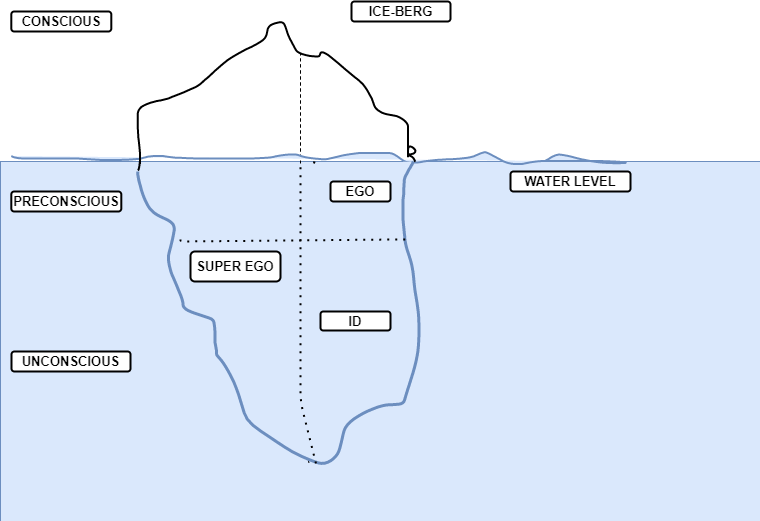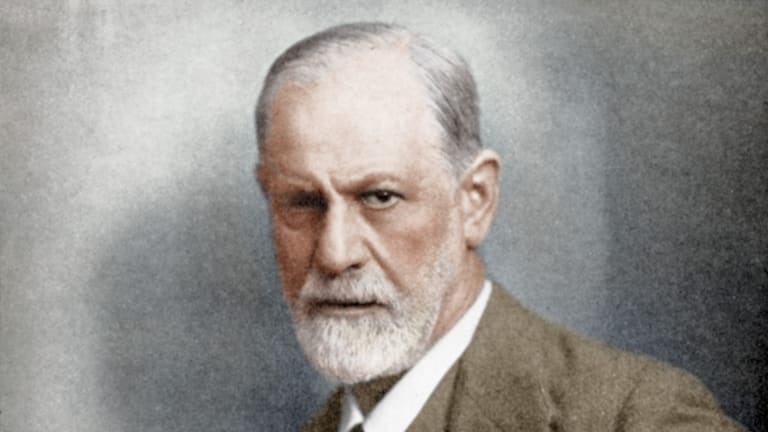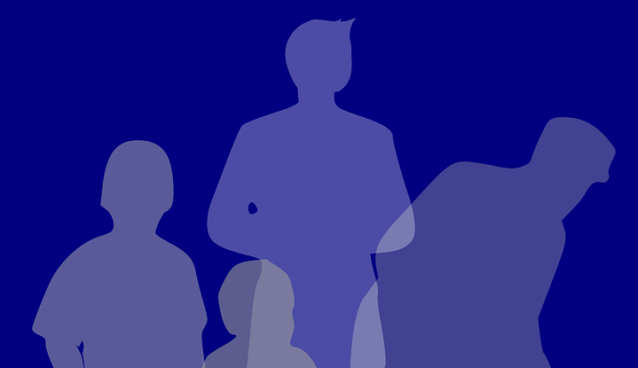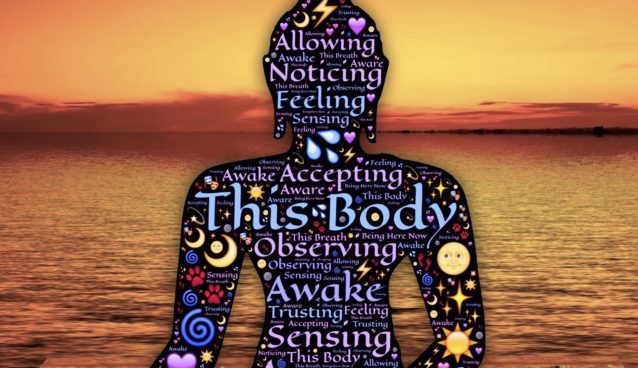Freud’s Psychoanalytic Theory of Socialisation
Table of Contents
Introduction
At the time of birth, human infant is just a biological organism with only animal needs, desires and impulses. He knows nothing about what we call society or social behaviour. As it grows, under the careful guidance of mother it learns to control bowel movements and regular hunger. Through his innate capacity he learns and communicate.
Through education, society imparts its knowledge, skill, values and behavioural patterns to its younger generations. These processes together constitutes socialization of a child.
Socialization : Meaning & Concept
The process of learning to internalize the values and norms into itself or the mode of learning to live in society is called the process of socialization.
To internalize is to imbibe so deeply that it becomes a part of the individual’s behaviour and personality.
Human child has an innate capacity to learn and communicate. Gradually child learns the group-defined ways of behaviour. It is human company initially in the form of a family and later other social institutions like peer group, school, community etc. educate the human child to be a responsible and useful member of society.
Socialization is a life-long process of inculcation whereby an individual learns the principles, values and symbols of the social system in which an individual participants and the expression of those values and norms in the roles he intact.
Psychoanalytic Theory of Study Behaviour
According to the Sigmund’s Freud’s Theory of Socialisation, the formation of human personality is an out come of the interplay of biological, psychological and social faculties of the individual.
Basic Principles
Freud formulated three basic principles while explaining the behaviour pattern and personality traits of an individual.
These are :-
- Every conscious action has a cause in the unconscious,
- That conscious are simply a puppet in the hands of unconscious, and
- That whatever one becomes as an adult was determined to be so in his/her early childhood.
Thus, according to Freud’s Principles, a major part of human personality is formed in the childhood and during rest of life, it is elaborated and sharpened.
Psychoanalytic Models to Study Behaviour
Freud, while explaining the psychoanalytic theory of study behaviour, he proposes :
(i) Topographical Model of Mind or Psyche, and later a more advanced,
(ii) Structural Model of Mind
Topographical Model of Mind or Psyche
In the topographical model of mind or psyche, Freud described the features of the mind’s structures and function.
Freud used the analogy of an ice-berg to describe the three levels of the mind.
The three levels of the mind are –
- Conscious Mind
- Subconscious Mind
- Unconscious Mind
On comparison of a human mind to a ocean, the upper layer or the surface would represent the conscious mind, the main bed would be identified with the subconscious and the bottom would form the unconscious.
CONSCIOUS MIND
The Conscious Mind lies just above the surface of the water like the tip of an ice-berg and occupies only one-tenth of our total psyche or mental life. The thoughts, ideas and images that we are aware of at any moment of our mental life are said to lie within this upper layer of our mind.
SUBCONSCIOUS MIND
Just beneath the conscious layer lies the Subconscious Mind. This middle portion of our mind store all types of information just beneath the surface of awareness dormant or untapped which can be easily brought to the levels of consciousness. Thus, in the middle bed or layer of the human mind there lies all the experiences and knowledge which have been gained or learned by an individual through variou types of experiences or training.
UNCONSCIOUS MIND
Below the subconscious mind lies the Unconscious Mind, the most important part of our mind. It contains all the repressed wishes, desires, feelings, drives and motives, many of which relate to sex and aggression.
All these repressed and forbidden desires and ideas are not destined to lie permanently in the unconscious. They usually strive and agitate to come up to the subconscious or the conscious layers of the mind, sometimes in disguised forms, in dreams and in reveries. This hidden treasure of mental life belonging to the unconscious mind is thus responsible for most of our behaviour. The causes and forms of abnormal behaviour and mental illness are all decided by what is hidden in the unconscious mind.

Advanced Structural Model of Mind
For more comprehensive analysis of human personality, Freud shifts his emphasis from the regions of mind to the structure and function of personality.
Freud developed a hypothetical conceptualizations of important mental functions, which he called “the Psychic Apparatus”, structural model of mind comprising the entities —
(i) ID (ii) EGO (iii) SUPER EGO
The Id, Ego, Super Ego have been conceptualized as three essential parts of the human personality.
ID : Instincts
EGO : Reality
SUPER EGO : Morality

ID
The Id represents the animal in man and is seated in the unconscious. It is the source of mental energy and of all instinctive energy of the individual.
It is present at birth and has the qualities of a spoiled child i.e. it must get what it wants, when it wants it. in this way, Id is quite selfish and unethical. It knows no reality. it operates according to pleasure principle.
SUPER EGO
The Super Ego is the direct anti thesis of Id and it represents the ethical and moral aspect of the psyche. It usually develops in the child at the age of five and is referred to as ‘conscience’ or the judgement from within.
Like Id, it is seated in the unconscious but it is governed by man’s instinctive tendencies or primitive drives. It is idealistic in nature and perfection is its goal, rather than pleasure-seeking or destruction.
It represents the values and norms of the society, which child has internalized through the process of socialization. Its main function is to decide whether the chosen object of satisfaction of needs is right or wrong from the point of view of the moral principles of society.
EGO
The Ego develops out of Id and act as an intermediary between three sets of forces i.e. the instinctive, irrational demands of Id, realities of the external world and the ethical, moral demands of the Super Ego.
It is extended to all the three layers of the mind for exercising its balancing role i.e. to control the Id in terms of reality and to appease the Super Ego. The Ego decides what is right and what is wrong, what is acceptable and what is not acceptable or what is possible and what is not possible. The action of an individual is guided by the Ego in choosing from among these alternatives on realistic principles.
Processing of Socialization
Through education, society imparts its knowledge, skill values and behavioural patterns to its younger generations. The development of self and control over Id and Super Ego, an individual can be capable of assuming the overall perspective of a community or general beliefs, values and norms.
Role of Family
The ill effects of unnecessary restrictions can lead to maladjusted personalities. Family should give maximum freedom to children for expression of their biological urges and minimum interference in the course of their growth and development.
The chief mechanism of socialization such as adjustment, tolerance, love should be involved in a child by being the role models of them.
Role of School
As we know, Id demands direct instinctual satisfaction whereas Super Ego as an internalized moral code checks the flow of Id into undesirable and unapproved channels. Role of School is to strengthen the Ego. A weak ego is prone to all disorders. If ego remains weak and Id becomes stronger then the result would be an antisocial behaviour, delinquency or crime. Therefore, for the development of a healthy and socially useful personality, it is necessary to have proper balance between Id, Ego and Super Ego.
Special attention should be given to moral development of a child.
Other theories on socialization includes –
- Mead’s Theory of Socialization
- Cooley’s Theory of Socialization.




